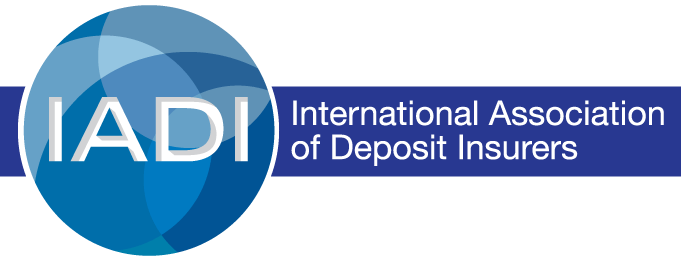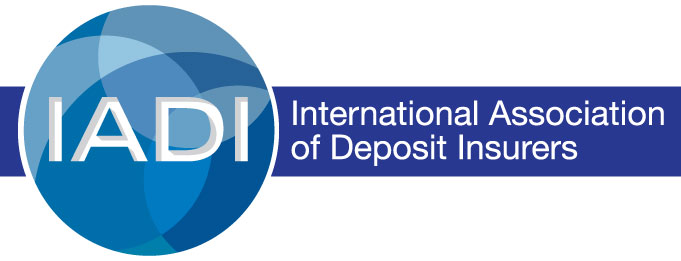Advancing Cooperation and Innovation in Financial Crisis Management
Remarks by Eva Hüpkes, IADI Secretary General, during the 9th Americas Deposit Insurance Fund in Asuncion, Paraguay.
Muy buenos días. Es un placer estar con ustedes hoy en el 9º Foro de Seguro de Depósitos de las Américas para abordar los principales desafíos y oportunidades en seguro de depósitos, supervisión y resolución.
It is my great honour to welcome the esteemed members of the Central Bank of Paraguay’s Board of Directors. I would like to extend a warm welcome to Ms. Carmen Marín, serving as Interim President of the Central Bank, Mr. Humberto Colmán, and Mr. Miguel Mora. I am also delighted to acknowledge Ms. Gabriela Pérez, Interim General Manager of the Central Bank of Paraguay, and Mr. Holger Insfrán, Superintendent of Banks. Thank you all for being here today.
I would like to express my sincere gratitude to Mr. José H. Maciel, Director of the Deposit Guarantee Fund, for hosting this important event and for offering Asunción as the venue. Your efforts and hospitality have made this gathering possible, and we are truly grateful.
Furthermore, it is a privilege to welcome Mr. Jorge Mogrovejo González, President of the Association of Banking Supervisors of the Americas (ASBA) and Deputy Superintendent of Banking and Microfinance at the Superintendence of Banking and Insurance of Peru. Thank you for joining us and for your continued leadership in advancing banking supervision in the region.
It is a true privilege to address you here in Asunción, one of the oldest cities in South America. Founded in 1537, Asunción quickly became a centre for regional cooperation and base for expeditions that established other major cities, including Buenos Aires. Centuries later, during the 17th and 18th centuries, Paraguay became central to a network of Jesuit missions, known as “reducciones,” which fostered cultural exchange and economic integration across borders. This historical role aligns closely with the themes of our discussions today. In the present day, the financial systems of the Americas remain deeply interconnected. As we navigate an increasingly complex financial environment shaped by technological innovation and the emergence of new players, the importance of effective cooperation and coordination has never been more essential.
I would like to start by reflecting on the collaborative work carried out by the International Association of Deposit Insurers (IADI) and the Association of Supervisors of Banks of the Americas (ASBA) on “Effective Cooperation for the Resolution of Financial Institutions in the Americas”[1]. This joint paper, published in 2019, was an important achievement in our shared efforts to enhance collaboration among deposit insurers, supervisors, and resolution authorities across the region.
Taking Stock of Progress
Since the publication of that paper, we have seen important strides in fostering cooperation and coordination among financial safety-net participants. Many jurisdictions have implemented or enhanced frameworks for information-sharing and developed mechanisms such as Memoranda of Understanding (MOUs) and Crisis Management Groups (CMGs).
The robustness of these frameworks was tested a year ago through a crisis simulation exercise facilitated by the Financial Stability Institute of the Bank for International Settlements.[2] Central banks, supervisory and resolution authorities, and deposit insurers from across the region (Costa Rica, the Dominican Republic, Ecuador, Guatemala, Honduras, Mexico, Peru) participated in this exercise. By simulating the failure of a regional banking group, the exercise provided participants with an opportunity to evaluate their crisis management frameworks, test their preparedness, and identify gaps areas for improvement:
One of the key takeaways was the critical importance of clearly understanding authorities’ roles, particularly in the early stages of a crisis. Knowing who is responsible for what, and when, can mean the difference between a coordinated, effective response and a fragmented, delayed one. Crisis management committees at the domestic level proved to be valuable tools for coordination, but their purpose must be clearly defined. Are they meant solely for information-sharing, and if so, what type of information and at what stage? Or are they intended to function as mechanisms for coordination and joint decision-making? This must be established clearly and in advance, during “peacetime,” to ensure that these mechanisms fulfil their purpose when a crisis arises. The development of playbooks can help clarify roles, decision-making processes, and the steps required to execute resolution strategies effectively. Jurisdictions that already had crisis management playbooks or protocols in place were notably better equipped to navigate the complexities of the simulated crisis which demonstrated the value of these tools in ensuring preparedness and coordination.
Another important lesson related to understanding data needs. The exercise highlighted that supervisory and resolution authorities often require different types of data. Clarity on who needs what information and when is essential for effective crisis management. Without this clarity, the broader resolution process can be hindered, and critical actions delayed.
The exercise unsurprisingly highlighted a natural tendency for authorities to focus on domestic solutions, in particular during the early stages of a crisis. While this inward focus is understandable as national mandates generally prioritise domestic financial stability, it may result in create challenges for coordinated action and the implementation of group-level strategies, particularly when addressing regionally or globally systemic institutions.
The exercise also demonstrated how the absence of information-sharing agreements or explicit provisions in legal or operating frameworks can obstruct communication and delay decision-making. Some authorities lacked clear guidelines on when and how to engage with foreign counterparts. For instance, deposit insurers responsible for executing a resolution or acting as a liquidator encountered significant challenges when they cannot directly seek information from foreign authorities and instead have to depend on other domestic authorities to handle communication, resulting in delays and potential miscommunication. This issue is particularly relevant in the Americas, where the proportion of deposit insurers involved in the resolution process—whether with paybox plus or loss minimiser mandates—exceeds the global average.[3]
Another critical area of focus was public communication. While coordinated efforts were made during the exercise to ensure that messaging is consistent, timely, and effective in maintaining public trust, gaps were evident. For example, the use of social media as a communication tool was not fully integrated into many authorities’ communication strategies.
Finally, the exercise reinforced the importance of cross-border cooperation arrangements, even when they are not firm-specific. Such arrangements provide a structured environment for discussing resolution strategies, sharing information, and aligning actions across jurisdictions. They also help enhance familiarity of each other’s crisis management frameworks which can be an obstacle to a coordinated response.
Remaining Challenges
In conclusion, significant progress has been made in strengthening frameworks over the past decade, but much remains to be done.
First, collaboration across jurisdictions is still hindered by legal barriers to information-sharing, resource constraints, and differing levels of technical capacity. These challenges are especially acute in cross-border resolutions, where variations in regulatory frameworks, mandates, and priorities can delay critical actions.
Second, the simulation exercise highlighted the importance of regular testing and preparedness. Tabletop and simulation exercises allow authorities to test frameworks, identify gaps, and refine strategies. Exercises should extend beyond domestic scenarios to include cross-border dimensions, ensuring robust coordination mechanisms. While full-scale simulations are resource-intensive and impractical to conduct frequently, focused tabletop exercises offer a cost-effective alternative. These targeted exercises enable authorities to improve decision-making, communication, and coordination without the logistical burden of larger simulations. Regularly incorporating such activities into workplans can enhance readiness while optimising resources.
Finally, the financial landscape is evolving rapidly with the rise of digital banks, fintech firms, and stablecoin issuers, bringing new risks and complexities. Traditional cooperation frameworks may not fully address these developments, requiring adaptation to this changing ecosystem. Emerging risks such as cyber threats, operational disruptions, and contagion in an interconnected financial system demand vigilance and a proactive approach to cooperation and resolution planning.
The Role of the Revised Core Principles
The ongoing review of the IADI Core Principles for Effective Deposit Insurance Systems provides a timely opportunity to strengthen deposit insurance frameworks. The proposed revisions incorporate lessons from the past decade and aim to ensure systems remain robust and adaptable to evolving challenges.
The Core Principles underline the importance of strong domestic coordination among safety-net participants—central banks, supervisory authorities, resolution authorities, and deposit insurers—to ensure actions are aligned and avoid duplication or conflicts. They also emphasise the need for effective cross-border cooperation. Where deposit insurers provide coverage for foreign deposits, bilateral or multilateral agreements should clearly outline roles and responsibilities for deposit insurance, public awareness, and resolution or reimbursement processes. The proposed updates to the Core Principles, notably Principle 17 “Financial safety-net cooperation, coordination and information sharing” and Principle 18 “Cross-border cooperation, coordination and information sharing” seek to further strengthen those provisions.
Later this week, our workshop will explore further the key updates to the Core Principles and share preliminary findings from pilot testing conducted by Fundo Garantidor de Créditos in Brazil. This will provide valuable insights into the practical application of the revised principles.
Looking Beyond Traditional Players
As we look to the future, it is equally important to expand our view beyond traditional players. Technological innovation is transforming the financial sector, and with it, the scope of our responsibilities.
Fast payment systems, such as Brazil’s Pix and Costa Rica’s SINPE Móvil, are enhancing financial inclusion but also raising questions about their integration with deposit insurance systems. Stablecoins and other digital assets, while promising efficiency and accessibility, introduce risks such as de-pegging and deposit substitution.
To address these challenges, we must engage with new actors, including fintech firms, technology providers, and central banks exploring digital currencies. We must also leverage technology to enhance our own capabilities, from real-time data sharing to automated payout systems.
Strengthening cooperation, adapting to innovation, and addressing emerging risks are not optional—they are essential to fulfilling our shared mandate of protecting depositors and promoting financial stability.
The discussions over the next few days, including the workshop on the revised Core Principles, will provide valuable insights and guidance for our collective efforts. I encourage each of you to contribute actively, share your experiences, and challenge conventional thinking.
Together, we can build a more resilient and inclusive financial system—one that not only responds effectively to crises but also anticipates and adapts to the opportunities and risks of tomorrow.
Thank you, and I look forward to the fruitful exchanges ahead.
[1] Effective-Cooperation-for-Resolution-of-Financial-Institutions-in-the-Americas.pdf
[2] Cross-border Crisis Simulation Exercise in Latin America
[3] In North America, and reflective of the wide mandates in this region, deposit insurers are resolution decision-makers to a degree that is well above-average (67% vs 11% globally). Latin American and Caribbean deposit insurers contribute to resolution decisions (67%) more often than the global average (34%). See IADI 2025 Globa Trends Report (forthcoming).

